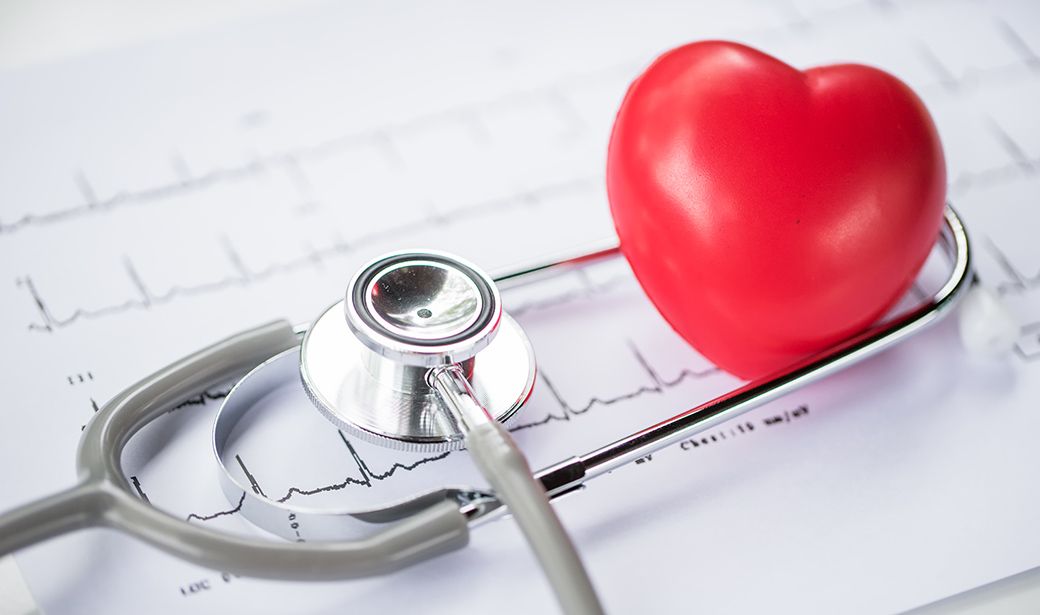10 Early Signs of Heart Disease You Should Know

Heart disease remains one of the leading causes of death worldwide, yet many people overlook its subtle warning signs. Detecting these early symptoms can help prevent serious complications and even save lives. Here are ten early signs of heart disease that you should know:
1. Chest Discomfort
One of the most common early signs of heart disease is chest discomfort. This includes pressure, squeezing, or pain in the chest that occurs during physical activity or stress. It may feel like a weight on your chest and could be a sign of angina, which occurs when the heart muscle doesn't get enough oxygen.
2. Shortness of Breath
Feeling out of breath during light activity or even at rest can signal heart problems. This occurs when the heart struggles to pump blood effectively, causing fluid buildup in the lungs.
3. Fatigue
Unexplained fatigue, especially after routine activities, may indicate that your heart isn't pumping efficiently. Chronic tiredness can often be an early warning of heart failure.
4. Swelling in the Legs, Ankles, or Feet
Swelling, or edema, occurs when blood flow slows and fluid builds up in tissues. This can be a sign of heart failure or poor circulation due to blocked arteries.
5. Irregular Heartbeat
Palpitations, fluttering, or irregular heartbeats can indicate atrial fibrillation or other heart rhythm disorders. While occasional irregularities may not be dangerous, persistent arrhythmias warrant medical attention.
6. Dizziness or Lightheadedness
Feeling dizzy or faint can result from reduced blood flow to the brain, often due to heart conditions like arrhythmias or a narrowed aortic valve.
7. Persistent Cough
A chronic cough, especially one that produces pink or white mucus, can be linked to heart failure. It results from fluid buildup in the lungs, making it harder to breathe.
8. Pain in Other Areas
Heart-related pain isn’t always confined to the chest. It may radiate to the arms, back, neck, jaw, or stomach. Women, in particular, may experience pain in atypical areas like the upper back or jaw.
9. Excessive Sweating
Unexplained sweating, especially cold sweats, can be a sign of a heart attack. Sweating while at rest or during mild activity should not be ignored.
10. Nausea or Indigestion
Heart problems can sometimes mimic gastrointestinal issues, causing nausea, indigestion, or abdominal discomfort. This is more common in women and may be an early sign of a heart attack.
When to See a Doctor
If you notice one or more of these symptoms, don’t ignore them. Heart disease often progresses silently, and early intervention is crucial. Schedule a checkup with your doctor and discuss your symptoms. Tests like an ECG, stress test, or blood work can help detect potential problems.
Prevention Tips
- Adopt a Heart-Healthy Diet: Focus on whole grains, lean proteins, healthy fats, and plenty of fruits and vegetables.
- Exercise Regularly: Aim for at least 150 minutes of moderate exercise per week.
- Quit Smoking: Smoking significantly increases the risk of heart disease.
- Manage Stress: Practice mindfulness, meditation, or yoga to keep stress levels in check.
- Monitor Your Health: Regularly check your blood pressure, cholesterol, and blood sugar levels.
Final Thoughts
Recognizing the early signs of heart disease can empower you to take proactive steps toward a healthier heart. Listen to your body and seek medical advice promptly to lower your risk of serious complications.
By staying informed and vigilant, you can protect your heart and enjoy a longer, healthier life.
- News & Updates
- Travel Destinations
- Maldivian Tourism
- Lifestyle
- Personal Stories & Experiences
- Sports
- Water Sports & Adventure
- Accommodation & Stays
- Outdoor Activities
- Local Culture & Heritage
- Spa & Wellness
- Transportation
- Outro
- Fishes and Marine Species
- Stories
- Health & Wellness
- Recipe
- Life Lessons



